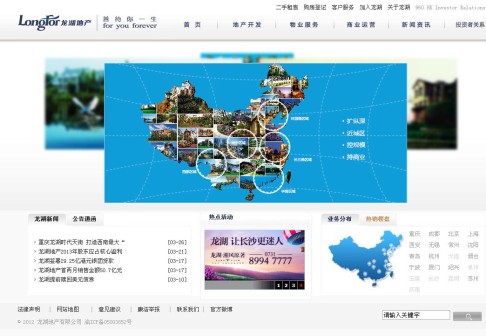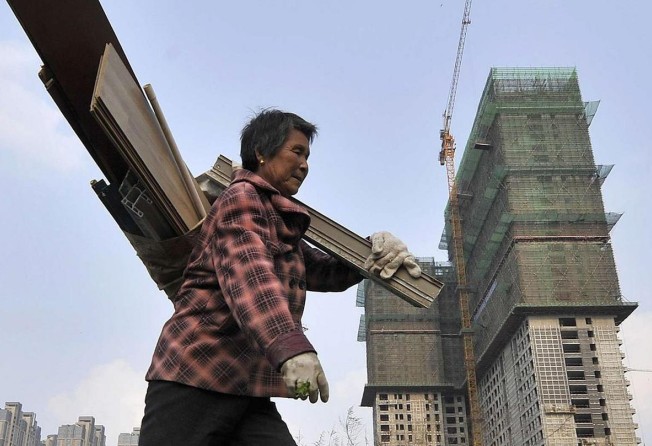
Developers team up to survive ebbing tide in property market
Mainland players aim to protect their financial soundness and reduce exposure to competition

As the tide turns adverse in the mainland's real estate market, developers are joining hands to expand while protecting their financial positions.
Bad decisions on one or two projects are enough to kill a small developer, as in the case of privately held Zhejiang Xingrun Real Estate, which collapsed under heavy debts last month and rang the alarm bell for the industry.
Talk about the bursting of a property bubble on the mainland has never died down. But the slowdown in economic growth and a credit crunch make the prospect even more worrisome.
To cut risks, mainland developers are turning rivalry into partnership, especially in mega projects or cities with expensive land, as they know the era of easy profits is gone.
"The ultimate goal is to reduce our direct exposure to fierce competition in the hot land market," said Wei Huaning, chief financial officer of Longfor Properties. "It will free up our cash flow and reduce our financial risk if we can introduce partners on big projects."
The company, known for its financial prudence, threw its doors wide open last year and increased the proportion of joint projects in its portfolio to 32 per cent by the end of the year from just 6 per cent at the beginning.
"We want to keep slim while growing big, and also give our shareholders a better return," Wei said.
Like Longfor, Agile Property tested such a strategy last year and intends to quicken the pace this year.
Entering Nanning, the capital of the Guangxi Zhuang autonomous region, for the first time in December, Agile teamed up with Guangzhou R&F, with a 50-50 split in four adjacent plots of land for retail, office and hotel development.
That followed a similar step months earlier, when it joined Greenland to buy a mixed-use site in Changsha, Hunan province.
Longfor and Agile are latecomers. Greentown China, once burned by over-aggressive expansion, is more active. Its partners include Sunac China, which focuses on the high-end market, and China Vanke, the country's biggest developer by sales revenue.
Last year, Greentown bought 11 sites for a premium of 24.3 billion yuan (HK$30.5 billion), but only 7.2 billion yuan was attributable to the firm. Such a strategy helped it penetrate deeper in existing markets or reach out to untapped waters without sacrificing its financial soundness.
The ebbing tide would quicken polarisation and consolidation of the market as banks cut their exposure and turned their backs on small players, Greentown chief executive Shou Bainian said.
"Some developers will face cash strains," he said. "This gives us an opportunity to acquire projects at low prices."